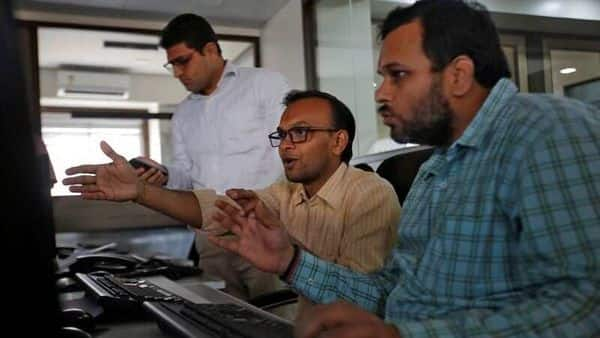Zerodha CEO explains - Why most retail investors lose money in option buying
Nithin Kamath, CEO and founder of Zerodha, says that over the past one year, he has seen the "alarming" trend in markets of retail investors shifting to buying of options. Zerodha has recently launched a tool called Nudge to alert traders to be more cautious when buying options. "80% of all open buy option positions at the end of every day are in losses. Buying options ruins most retail traders. Because they don't understand the risk of leverage, averaging down, & impact costs," Zerodha founder said in a tweet.
In a blog post, he said: "Over the last year, we have seen a trend of retail traders shifting from trading stocks and futures to buying options. This may be fuelled by the restrictions on intraday leverages on stocks and futures under the new peak margin rules. This trend is also strengthened by an influx of younger, more aggressive traders. This has been alarming for us as Zerodha."
"Over my past 20 years in the markets, I have interacted with many retail traders, in various capacities. And one thing I’ve seen that leads retail investors to consistently lose money is option buying. The main reason for this is traders usually transition from trading stocks or futures to trading options. And so, they end up trading options like the way they traded stocks," he added.
In the same blog post, he shared why most option buyers lose money, the best practices to reduce risk and improve odds of profiting when buying options:
Risk management
Leverage, as commonly said, is like a weapon of mass destruction unless used carefully. "The most fundamental risk management rule when actively trading with leverage is to ensure you don’t take a position so large that it can cause a loss of more than 5% of your trading capital. When buying options, the entire value of the option can go to zero quickly. This means you shouldn’t be buying options for more than a small percentage (<5%) of your capital at any given time," he said.
Time decay of options
"The most common way in which traders lose money is by buying Calls when they think the market is bullish and buying Puts when they think the market is bearish. More often than not, they buy OTM Options," he says.
Option premium is the intrinsic value of the contract and time value. This means that the trader has to be right on market direction in a big way and within a short period, he says.
"The one certain thing is the constantly reducing time value. This is the main reason why option buyers lose money – they are constantly fighting time. This is unlike trading stocks or futures, where you can potentially hold the stock forever or continue rolling the futures contracts, albeit at a small rollover cost. The above effect of time value gets exaggerated because most actively traded options contracts are ATM (At The Money) or OTM (Out of The Money) which have no intrinsic value."
If you buy weekly expiries as compared to monthly expiries, time value reduces much faster.
So, Zerodha CEO suggests, "if you are taking a directional view buying options, always trade monthly expiry, you will have much more time value and hence higher odds of profiting as compared to trading weekly."
Stop your losses fast
Losses are easiest to accept when they are small but as they get bigger, it only gets tougher to exit. "If trading options with larger than say even 1% of your capital, having a stop loss in place is important. Many retail traders get stuck in this vicious cycle of hope when there is a loss that is too big to accept. Short term or intraday trades turn into long term positions just because of the loss. When you buy options, this decision to hold losing intraday positions overnight only exaggerates the loss. When you buy options, there is a constant depreciation of time value, and along with it, the premium. Every extra day and weekend that you hold buy option positions significantly erodes the premium," he says.
Averaging down buy option positions is a bad idea
Averaging down can work sometimes when you buy stocks and the markets are in a long-term bull market because you have time in your favour or the ability to hold on to the position forever. It is ludicrous to think of doing the same with long/buy options when time is constantly ticking against you, he says.
"The right way to trade the markets is to never get overexposed to any trade that can cause more than 5% of your trading capital. If your potential losses are limited, the chances of you acting rationally when a trade goes against you is much higher. Averaging down positions is done by traders who don’t want to accept their losses, and this most likely happens when the losses are too large to accept," he says.

No comments:
Post a Comment